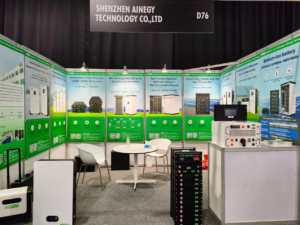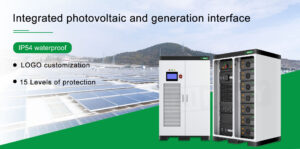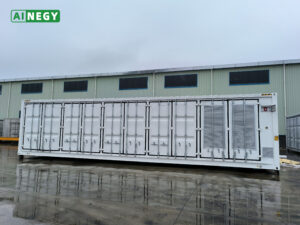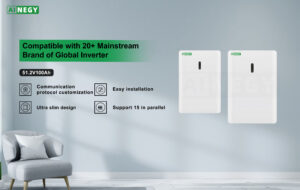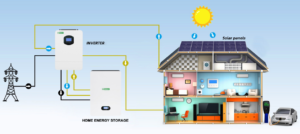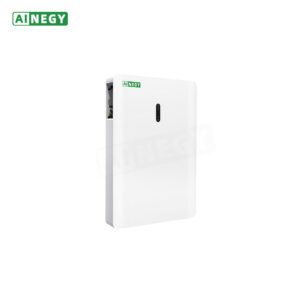The lifespan of a solar inverter battery can vary depending on several factors, including the type of battery, its usage patterns, maintenance, and environmental conditions. Here are some general guidelines for the lifespan of commonly used solar inverter batteries:
- Lead-Acid Batteries: Traditional lead-acid batteries, including flooded, sealed, and gel batteries, are commonly used in solar power systems. The lifespan of lead-acid batteries typically ranges from 3 to 10 years, with proper maintenance and regular cycling. However, deep cycling (discharging the battery significantly) and poor maintenance practices can shorten their lifespan.
- Lithium-Ion Batteries: Lithium-ion (Li-ion) batteries have gained popularity in recent years due to their higher energy density, longer cycle life, and better performance compared to lead-acid batteries. The lifespan of Li-ion batteries used in solar power systems can range from 10 to 20 years or even longer, depending on the specific chemistry and quality of the battery. Proper charging and discharging practices, as well as temperature management, can help maximize their lifespan.
- Battery Usage: The lifespan of a solar inverter battery is affected by how it is used. Regular deep discharges and high charge/discharge rates can accelerate battery degradation. It’s important to choose a battery capacity that meets your energy demands without excessive strain on the battery.
- Maintenance and Care: Proper maintenance can extend the life of a solar inverter battery. This includes regular inspections, keeping the battery terminals clean, ensuring proper ventilation, and following manufacturer guidelines for charging and discharging. Some batteries may require periodic equalization or specific maintenance procedures.
- Environmental Factors: Environmental conditions can impact battery lifespan. High temperatures can accelerate battery degradation, while extreme cold temperatures can affect battery performance. It’s important to consider the battery’s temperature range specifications and provide appropriate insulation or ventilation if needed.
- Warranty: Solar inverter batteries often come with warranties that indicate the expected lifespan. However, it’s important to note that the warranty period does not necessarily guarantee the battery’s actual lifespan, as it depends on various factors mentioned above.
It’s advisable to consult with the manufacturer or a qualified solar professional to determine the expected lifespan of a specific solar inverter battery based on its specifications and the intended usage scenario.

